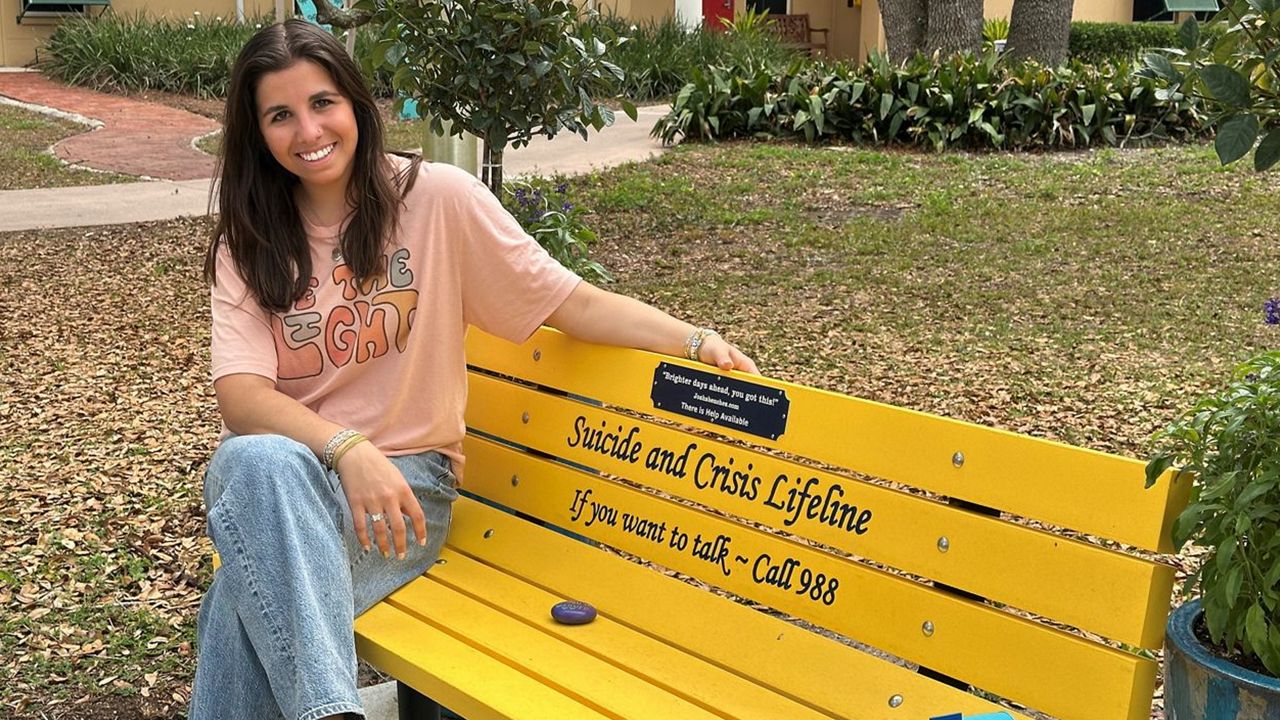BRADENTON, Fla. — Manatee High School graduate Meghan Corbran worked hard for four years so she could qualify for Florida’s Bright Futures Scholarship.
What You Need To Know
- Meghan Corbran had met all requirements except for ACT
- It has been canceled multiple times because of coronavirus
- "No one is trying to fix the problem," she says
- BELOW: Statement from Department of Education
Corbran graduated at the top 10% of her class with a GPA that exceeded the Bright Future’s requirement. She also had her volunteer hours completed. Corbran says all she needed was to score a 26 on the ACT before the July 31 deadline.
The teen took the ACT once in November and fell 2 points short. She planned to take the test again in the spring, which is customary for many college-bound seniors.
Corbran signed up for the April 4 ACT test date and days before learned through an email that it was canceled due to COVID-19 concerns. She was directed to reschedule to the Jun 13 testing date. Days before, that test was also canceled due to the pandemic.
Her third and final hope was to attend the exam on July 18. Corbran said she arrived at Manatee High School with roughly 50 other students and no proctor ever showed. The ACT website later revealed that test had been canceled just hours before.
“They’ve added new dates for September but I’m already in college at this point and that September date does me no good,” she said.
The teen says she feels she wasn’t given a fair shot at obtaining the scholarship.
“No one is trying to fix the problem at this point,” Corbran said.
The Bright Futures website states that the deadline was extended to July 31 to give students more time to qualify. But with three canceled ACT tests, the extended deadline didn’t help Corbran and other seniors who have found themselves in similar situations.
Spectrum Bay News 9 reached out to the Florida Department of Education, who said they don’t have the legal power to make changes to the scholarship requirement. We received this written statement from Cheryl Etters, deputy director of communications for the department:
“Since the inception of Florida’s response to COVID-19, wherever possible we have been extremely proactive in making numerous accommodations that have benefited Florida’s nearly 3.3 million public and private school students, their families, their teachers and their schools throughout Florida. In each case, we’ve undertaken careful legal analyses to determine the extent of our authority, as granted by state and federal laws and the emergency authorities of the Governor and Division of Emergency Management. There are some instances where the department was able to unilaterally suspend a statute – such as the department’s cancelation of state testing for Spring 2020. Unfortunately, this is not a case with Bright Futures in which the Department cannot comprehensively control this issue, because it is funded by state lottery trust funds. The allocation of state dollars is a legislative prerogative and the Department does not have the authority to make unilateral decisions in this instance. For example, if we act in a way that impacts the appropriation of these funds now that would also impact the availability of funds for future scholarships.
What we were able to do was provide accommodations for volunteer service hours and extend the deadline in which a student had to sit for a test, thereby allowing seniors more time and opportunity to earn those qualifications and count them towards college or university admissions for this coming school year. We worked with ACT to open additional testing sites in school districts and colleges, and ACT waived registration fees for the June and July tests and they extended their registration deadlines. We also encouraged the College Board, the private entity that oversees the SAT, to conduct testing before the July 31 deadline. Previously, the College Board let us know that they were not going to conduct testing in June or July. We were hopeful that Emergency Order 2020-05 (see attached) would give the College Board the incentive to change that decision and support our seniors who were still looking for one more opportunity to sit for the test. Unfortunately, the College Board did not prioritize our seniors and schedule the SAT before the July 31 deadline.”
Corbran is hoping that something can be done to help her and other seniors who have found themselves in the same position. She's now scrambling to apply for student loans before attending Florida Atlantic University in August.









